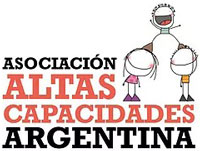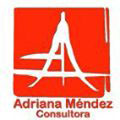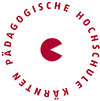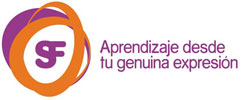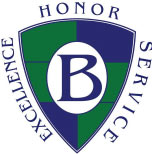Alumnos con Altas Capacidades: ¿Cómo incluir aquello que no se conoce?
By Laura Diz
Los niños con Altas Capacidades (AACC) reúnen el 15% de los alumnos del pais. La temática no es abordada en la formación docente ni en carreras como psicología, psicopedagogía, neurología o pediatría. Esto, sumado a los mitos existentes en la sociedad, dificultan tanto la detección como la adecuada atención escolar derivada de las necesidades educativas especificas de este colectivo. A su vez es frecuente que se los etiquete con trastornos "conocidos" como Asperger, ADD, TDH, Oposicionismo desafiante, etc, afectando gravemente no solo al niño sino tambien a su familia.
Laura Diz - Presidente de la Asociación Altas Capacidades Argentina. Lic en Cs de la Familia, especializada en Atención y estimulación temprana de la primera infancia y Neuropsicología del aprendizaje.
Psicóloga Social esp en Gestión y conducción del sistema educativo y sus instituciones y Prevención del Bullying. Acompañante terapéutico.
Institution: AACA
Brain-friendly Tips that Foster Life-long Learning
By Esther Vázquez
"Teaching without an awareness of how the brain learns is like designing a glove with no sense of what a hand looks like". (Hart, 1983).
In this session Esther will share some pragmatic information about how the brain learns and discuss an array of "brain-compatible" practices which promote memorable, life-long learning.
Esther Vázquez is an experienced teacher and teacher trainer and a specialist in the field of neurosciences and education. She has lectured extensively in South America and the USA and in 2017 she received a TESOL Professional Development Scholarship. In 2019 Esther founded EVenio Educational Consultancy of which she is CEO and Director.
Institution: Consultor EV
British, American or… Argentinean?
By Cecilia Zunino
There is always the same debate revolving around which English should be spoken at school. Is British English or American English the most suitable option? We are deeply concerned about grammar, use of English and vocabulary, but today I challenge you with a new query: Do you speak British, American or Argentinean English? Let’s reflect together upon the importance of idiosyncratic features in the classroom and how to improve the quality and actual results of our lessons by acknowledging our own native features.
Ceci Zunino has a degree in English Language. She lectures Phonetics, English Phonology and Diction at USAL and teaches Language and Literature at secondary level. She is leader of the Phonology and Idiosyncrasy procedure at New Zealand Pacific School. She is the author of the book Stories for the Innocent Soul sponsored by Path International Examinations.
Institution: USAL
Creating Safe Environments in our Institutions
By Adriana Mendez
We consider that creating safe or resonant environments in our institutions and classrooms is crucial for an effective learning process. When our students, teachers, authorities and general staff experience closeness, consistency and trust, oxitocine is released with its positive effects in the teaching- learning process. In this presentation we will see how we can build physical and emotional environments successfully. Fortunately, nowadays many institutions are including these practices since their members are fully aware of the advantages. Let your institution become part of this worldwide consciousness!
Adriana Méndez is a teacher of English. International Master in Neurolinguistic Programming (NLP). Bachelor in NLP -tertiary level degree. Coach in Neurolearning; an international degree in Positive Psychology. Headmistress of “Adriana Méndez Consultora”. International lecturer. Co-author of the book “Neuropedagogía”; author of “Equipos resonantes” and “Reeducando nuestros pensamientos” (Editorial Bonum).
Institution: AM Consultora
Finding your Creative Self
By Susan Hillyard
This workshop is not about how to teach a subject creatively. It is about changing your approach to teaching. It will encourage you, the learner and teacher, to change your mind-set and open up your "box" to both receive and transmit new ways of looking at old things. It is essentially about changing perceptions and then learning how to tap into your true creative self. Having made a click in this area you will go on to find out how you can transfer these newly-learnt processes into the daily lived life of your students in your classroom. I will facilitate the process through lots of practice and a little theory.
Susan has a B.Ed. (Hons.) degree from Warwick University in UK. She has played many roles in her long career. She is former Coordinator of English in Action, training twenty teachers to teach English through Drama in Special Education. Presently she is founder and Director of SHELTA, Susan Hillyard’s English Language Teachers’ Academy and a freelance consultant for the British Council in China.
Sponsored by: Pearson
How to get Centennials with you.
By Mirta Pola Rossi
We have learnt how to teach previous generations, we have dealt with different challenges. However, what are we to do with these new students to call their attention and follow us?
Passionate thinker, Neuropsychotrainer and author. Specialized in Emotional and Social Skills. International speaker. Head and owner of PET (Practical English Teaching) School of English since 1980. Enthusiastic participant on radio programs dealing with life skills and new generations. Creator of NANO courses online for teachers and coordinators both in English and Spanish.
Institution: Cultural Inglesa PET
Language Learning for Peace and Citizen Education
By Hilda Fanta & Johanna Fanta-Jende
Language education promotes positive values and assists students to take responsibility as global citizens who contribute to a more peaceful and just world. Our youth is our future. We should invest
in our youth? education, in their belief that changes for a good, truthful life in dignity is possible.
Hilda Maria Magdalena Fanta is Professor at the University College of Teacher Education UCTE, Viktor Frankl UC, Adj. Prof. at the University of Applied Science, Lecturer at the Alps-Adriatic University in Klagenfurt, Austria. She is a trainer of technical English and works in international youth exchange programs.
Johanna Maria Magdalena Fanta-Jende is a researcher and lecturer at the University of Vienna. The project focuses on regional languages (German and variants) and language shift phenomena.
Her doctoral thesis will highlight phonology.
Institution: Pëdagogische Hochschule Kärnten
Mindful teachers, calmer classrooms
By Fabiana Bovazzi
As teachers, there is a lot we can do every day to encourage our students to give their best and watch them grow emotionally healthy. We have the power to create enriched and calmer environments that can make their brains feel free of threatening situations. In this talk we will share practical ideas based on Mindfulness that can be applied in the classroom. Be open! Be mindful!
A life-long learner who has been in the field of Education for 38 years. She is an experienced teacher trainer who has taught all levels in both private and public sectors. She became a Head of English at the age of 24 and has worked as such in different schools. A graduate from I.N.S. del Prof. en Lenguas Vivas J. Ramón Fernández. She also holds a degree in Educational Management and Administration from UNSAM. She is a Neurolearning Coach and a Mindfulness facilitator. She has spoken at numerous national and international conferences and seminars throughout the country and has taught at Universities in Chile and Argentina. She is also a writer. She wrote: “Neuroeducación infantil: La ventana al futuro”, “Mindfulness…el camino hacia la plenitud consciente”, and “Mindfulness en el aula” all books published by Editorial Bonum.
No Spanish in the English Class?
By María Marta Suárez
In monolingual classes teachers have confessed to using the learner’s mother tongue in their lessons. This linguistic transgression can make them feel guilty of sinful professional practices. This session is an invitation to rise above shame to make a conscious choice of when and why use the learner’s mother tongue.
Lic. María Marta Suárez has been an immersion teacher for multilingual groups at Cluny Hill College and a lecturer in Methodology-related subjects at different Profesorados in Buenos Aires. She delivers teacher development onsite and online courses for teachers worldwide. Her star creation -ALL English for Babies®- is applied in seven countries in Latin America and Europe.
Sponsored by: All Methods
Pronunciation from Day One
By Leandro Paladino
When should we begin with our students’ phonetic training? Should we focus more on vowels or consonants? Other areas for that matter? Should the schwa and weak forms be “taught” openly? How can pronunciation games be naturally blended into our syllabuses? Come to this very practical workshop to answer these and other questions related to speaking, accents, World Englishes and more!
Leandro Paladino is a teacher of English Language and Literature with the University of La Plata, Argentina, and holds a Master’s Degree in Bilingual Education with the University of Birmingham, UK. He is the general director of NEL (New English Learning), a foreign-language academy, and one of the founders of Colegio York, a bilingual school, both in the city of La Plata. For the past fifteen years, he has been teaching English Language IV in I.S.P. Terrero of the same city. Leandro has delivered workshops and seminars for English teachers around Argentina and Uruguay, and has published articles and materials in ELT.
Institution: Colegio York
Self-regulated students- mission: impossible? (delivered in Spanish)
By Laura Lewin
Kids today are not like the ones we used to teach years ago. These kids don´t even have to think or wait! Google, waze, cellphones, all answers at lightning speed!
This instant gratification generation finds it hard to self-regulate their thinking and behavior. And what´s more, students today expect more with less work. Let´s face it: with this century information overload and constant distractions, teaching and learning is not easy.
Effective teachers know that teaching students to think deeply, to focus, build confidence, and set goals is as necessary as teaching grammar or vocabulary. This action-ready workshop will provide you with the right tools to promote student engagement and autonomy in learning.
Laura Lewin is an internationally recognized speaker, author and consultant, and for the past thirty years she has been involved in teacher training. She has designed and delivered workshops for teachers and for ELT Managers all over Latin America, the Caribbean, the United States and Europe. Laura is the President of the Organizing Committee of the International Conference of Professional Development for Teachers of English and Administrators, among other conferences. She pursued studies in translation in Argentina (UADE) and TESOL in the USA (University of California). Laura is an international teacher trainer for Cambridge University Press (UK), and author of eight books: "Gestión Educativa en Acción" (Noveduc, 2015), "El Aula Afectiva (Santillana, 2016), "Que Enseñes no significa que Aprendan" (Bonum, 2017), "Anita & Ben" (Hola Chicos, 2018); "Aulas Motivadas" (Hola Chicos, 2018), "Mejores Directivos, Mejores Instituciones Educativas" (Bonum 2018 ), and Fuertes y Felices (Bonum 2019). She has also co-authored La Educación Transformada (Santillana 2018).
Institution: ABS International
Spaghetti, Marshmallows, and English Language Teaching
By Jair Felix
Which students tend to do the worst? Why? Which tend to do the best? Why? What improves performance? What kills it? ...These are some of the questions that teachers regularly ask themselves when reflecting on the teaching and learning process that takes place in the classroom.
This workshop intends to provide answers to those questions through a remarkably fun and instructive exercise that encourages teachers to experience simple but profound lessons in collaboration, innovation and creativity - all of which lie at the heart of effective language teaching and learning.
Jair Félix, National Geographic Learning Senior ELT Academic Consultant for Latin America, has a B.A. in TEFL from Universidad Autonoma de Sinaloa in Mexico and a Post-Graduate Degree on Teachers’ Development from The College of St. Mark & St. John, Plymouth, UK. Jair has been involved in language teaching and teacher training for over 22 years and has conducted workshops on various topics such as lesson planning, discourse analysis for language teachers, action research, educational technologies, and 21st century skills, among others. Jair holds a Diploma in Teaching English for Specific Purposes (DipTESP) and the E-Tutoring Certificate from the British Council. He is a frequent presenter at ELT conferences throughout Latin America.
Sponsored by: National Geographic Learning
Storytelling in the Classroom
By Jair Felix
Storytelling opens a world of infinite possibilities which can engage and entice students’ interest. The stories told in TED Talks reflect global issues that permeate every aspect of our lives: personal experiences, ecology, science, etc. Their content is relevant to the lives of our learners. They offer an opportunity for exploring a topic and its language.
The value of listening to a story goes beyond the entertainment it might offer; exposure to stories can contribute to a person’s intellectual, emotional and moral development; it also has thought-provoking qualities which whet a student’s appetite for understanding.
This workshop will share ideas and garner participants’ experiences of working with stories. It will explore how storytelling can enhance working with language skills in an authentic manner.
Jair Félix, National Geographic Learning Senior ELT Academic Consultant for Latin America, has a B.A. in TEFL from Universidad Autonoma de Sinaloa in Mexico and a Post-Graduate Degree on Teachers’ Development from The College of St. Mark & St. John, Plymouth, UK. Jair has been involved in language teaching and teacher training for over 22 years and has conducted workshops on various topics such as lesson planning, discourse analysis for language teachers, action research, educational technologies, and 21st century skills, among others. Jair holds a Diploma in Teaching English for Specific Purposes (DipTESP) and the E-Tutoring Certificate from the British Council. He is a frequent presenter at ELT conferences throughout Latin America.
Sponsored by: National Geographic Learning
Using Additional Skills to cater for Special Learning Difficulties
By Alejandra Ottolina
Inclusive classrooms represent a great challenge for teachers, coordinators, parents and students themselves. Why? Where do the main difficulties lie?
In this workshop, we will discuss practical strategies to help students with special needs as we focus on the development of additional skills such as fine motor, auditory, attention and social communication to scaffold their learning.
• Have you got students with a range of learning difficulties?
• Are you finding it hardtop cater for everybody’s needs?
• Do you feel you haven’t been trained for this reality?
Join us! This workshop will give you an insight into your own potential.
Alejandra Ottolina is an experienced teacher trainer who has taught all levels in both public and private sectors. Director of Studies at Santa Monica School of Languages since 1990, Alejandra has lectured in Argentina as well as in neighbouring countries. She joined the Macmillan team in 2005, when she became the Course Consultant for Winners, Macmillan’s best-selling series for children. Since then, she has authored several teachers’ books: For Winners, Switch On, Insights and Phases New Edition, among others. Alejandra is now about to get her degree as in Educational Therapy.
Sponsored by: Macmillan Education
Using Classroom Discourse as a Practical Way to Model High Level Inquiry and Analysis
By Ery Millan-Coffey
Classroom discourse can be so transactional that we rarely give it a second thought. However, we can infuse classroom interaction with more. We can also take advantage of the opportunity to model inquiry and analysis in an authentic context while students mimic these behaviors in a controlled environment.
A trusted and experienced teacher and administrator who grew up in the immigrant community of San Diego, California, Ery is a true California girl at heart. She started her career in International Education as a teacher 12 years ago, teaching at all levels in the private and public sector before making the transition to administrator 4 years ago.
Today she is an Academic Programs Manager at UC Riverside Extension whose focus is bridging programs that help prepare students for the academic and cultural rigors of studying at U.S. universities.
Institution: University of California Riverside
Visible Thinking as School Culture
By Leandro Paladino
Many of us teachers know the importance of helping students make their thinking visible, and of routinizing both the thinking and its visibility. We know such work is not about isolated tasks or activities, but about thinking patterns. What can we do, as directors and coordinators, to make sure that these patterns cut across grades, ages and school levels? How can they become institutional practice? This practical workshop will explore uses of visible thinking beyond individual classrooms: in teacher workshops, parent meetings and school-wide initiatives.
Leandro Paladino is a teacher of English Language and Literature with the University of La Plata, Argentina, and holds a Master’s Degree in Bilingual Education with the University of Birmingham, UK. He is the general director of NEL (New English Learning), a foreign-language academy, and one of the founders of Colegio York, a bilingual school, both in the city of La Plata. For the past fifteen years, he has been teaching English Language IV in I.S.P. Terrero of the same city. Leandro has delivered workshops and seminars for English teachers around Argentina and Uruguay, and has published articles and materials in ELT.
Institution: Colegio York
Welcome to Grammarland! Effective strategies to teach grammar communicatively
By Paola Danesi
Grammar is a vital component of language. We do not use language without grammar. Now, how can we help students master language structures for communication, for real life purposes?
The communicative revolution switched the focus from FORM to MEANING, from teaching about the language to helping students use the target language appropriately in a variety of situations.
The workshop is an invitation to revisit different grammar approaches, examine new trends and explore a portfolio of teaching strategies to make grammar learning fun, memorable and effective.
Language III teacher from IES Lenguas Vivas J.R. Fernández with international qualifications in Communicative Teaching (IE- University of London).
Teacher trainer at Escuela de Maestros (CABA Gov)
English coordinator at Iosef Caro School.
Co author of teacher´s manuals “My English Trip” and “Hop into English” (Macmillan)
ELT speaker - teacher trainer for Pearson Argentina, Chile, Bolivia, Perú, Paraguay and Ecuador.
You snooze, you lose - Awakening Coaching Strategies!
By Silvina Fernandes
Classroom management urges us to deal with external demands that have nothing to do with 21st century skills, to follow regulations to the letter to fit in, to avoid “chaotic”-though creative- ideas, to stick to a syllables that encourages repeating concepts rather than integrating learning to real life situations...With all these drawbacks, why are you still committed to teaching?
In this workshop, by applying coaching strategies, we´ll go back to basics- your own basics. Your inner and genuine motivation will wake up. No more autopilot survival!
Lic. Silvina Fernandes has been enthusiastically committed to the educational field for 22 years. Teacher of English (USAL), Neurosicoeducator, Life Coach. She has also specialized in NLP in Cambridge. Author of “Educación en Positivo” (CEPA), educational consultant, teacher trainer and designer of online courses to expand socio-emotional intelligence. Speaker in conferences all over the country. Head of the Emotional Intelligence and Vocational Coaching Workshops for teenagers at San Agustín School (CABA).
Institution: Consultora SF

Avoid Burnout by Firing them up
By Susan Hillyard
This PIPP examines the recent development of a new phenomenon entitled “Burn out” which appears to be affecting more and more teachers across the globe as education systems seek to raise standards, systematise scores, support stress through competition and steal the happy youthful years of our young learners. As a corollary, it seems these same systems are stealing the teachers’ joy of spending their days developing the minds of these young learners and deriving their just rewards. In its place the teachers get tired, disillusioned and eventually drop out of what began as a shining, creative career. It considers a number of alternatives to prevent such burnout and looks at ways that Directors and Managers might fire up their teachers and keep the flag flying for a positive, lively group of staff who may in their turn fire up the joy of learning in their students. We will look particularly at proactive intention and the notion of agency for teachers to keep them going in the face of pressure. By the end of the session the participants will have reflected on the needs and well-being of their staff and will have started to ponder on their own teacher development plans for their context.
Susan has a B.Ed. (Hons.) degree from Warwick University in UK. She has played many roles in her long career. She is former Coordinator of English in Action, training twenty teachers to teach English through Drama in Special Education. Presently she is founder and Director of SHELTA, Susan Hillyard’s English Language Teachers’ Academy and a freelance consultant for the British Council in China.
Sponsored by: Pearson
Babyboomer heads, Millennial teachers, Centennial students.
By Mirta Pola Rossi
It is the first time in formal education that several generations with different backgrounds and profiles share our classrooms. How to learn from each other is the challenge and how to reach each other goals the summit to reach.
Passionate thinker, Neuropsychotrainer and author. Specialized in Emotional and Social Skills. International speaker. Head and owner of PET (Practical English Teaching) School of English since 1980. Enthusiastic participant on radio programs dealing with life skills and new generations. Creator of NANO courses online for teachers and coordinators both in English and Spanish.
Institution: Cultural Inglesa PET
Courageous Leadership (delivered in Spanish)
By Laura Lewin
If you have decided courage over comfort, this workshop is for you!
Leadership means you will have to recognize and develop the potential in people, but leading people who simply do not follow you is impossible. Leadership is influence- nothing more, nothing else.
The good news: good leadership can be taught! But in order to learn how to do things right, you will have to unlearn a lot! Ready to lead mindfully? Step up into courageous leadership!
Laura Lewin is an internationally recognized speaker, author and consultant, and for the past thirty years she has been involved in teacher training. She has designed and delivered workshops for teachers and for ELT Managers all over Latin America, the Caribbean, the United States and Europe. Laura is the President of the Organizing Committee of the International Conference of Professional Development for Teachers of English and Administrators, among other conferences. She pursued studies in translation in Argentina (UADE) and TESOL in the USA (University of California). Laura is an international teacher trainer for Cambridge University Press (UK), and author of eight books: "Gestión Educativa en Acción" (Noveduc, 2015), "El Aula Afectiva (Santillana, 2016), "Que Enseñes no significa que Aprendan" (Bonum, 2017), "Anita & Ben" (Hola Chicos, 2018); "Aulas Motivadas" (Hola Chicos, 2018), "Mejores Directivos, Mejores Instituciones Educativas" (Bonum 2018 ), and Fuertes y Felices (Bonum 2019). She has also co-authored La Educación Transformada (Santillana 2018).
Institution: ABS International
Effective Teachers, Effective Schools: Building and Maintaining Positive Teacher Morale
By Andrea Simon
Teaching is a very powerful profession. The ability to approach each workday in a positive state of mind is critical to being successful with students. The effectiveness of the teachers will determine the effectiveness of the school itself. School leaders have a tremendous task ahead of them: building and maintaining highly motivated, intentionally enthusiastic and positive teacher morale. This workshop will help educational leaders to increase the morale of their entire staff, including their own.
Andrea Simon is a “third culture kid” born in Chicago, Illinois. She grew up between the United States and Argentina. Her upbringing has fueled her passion for human behavior, leadership, and cultural diversity, leading her to pursue a career in education.
She holds a degree in Human Development from San Diego Christian College and a California Teaching Credential with a specialization in Cross-cultural Teaching. She graduated from Universidad de San Andrés with an MA in Educational Management and Leadership and a specialization in School Leadership.
She has 30 years of teaching and school administration experience in private and public schools of California and Argentina. She has also presented workshops on educational leadership in Mexico, Argentina, and the U.S. She also performs accreditation visits having audited schools in the cities of Belem, Sao Paulo, and Brazilia in Brazil and in Asuncion, Paraguay. Currently, she works as Superintendent at BAICA an international school located in San Fernando, Argentina.
Institution: BAICA
Framework for Innovation amid Current Global Trends
By Jair Felix
How might we know whether our schools or systems are set up to optimize learning? How can we find out whether we are getting the most from technology? How can we evaluate our innovation or think through whether our change initiatives will bring about its desired results?
This talk will showcase different approaches for analyzing, implementing and evaluating frameworks for innovation in the educational market, all with idea of empowering agents of change and development.
Jair Félix, National Geographic Learning Senior ELT Academic Consultant for Latin America, has a B.A. in TEFL from Universidad Autonoma de Sinaloa in Mexico and a Post-Graduate Degree on Teachers’ Development from The College of St. Mark & St. John, Plymouth, UK. Jair has been involved in language teaching and teacher training for over 22 years and has conducted workshops on various topics such as lesson planning, discourse analysis for language teachers, action research, educational technologies, and 21st century skills, among others. Jair holds a Diploma in Teaching English for Specific Purposes (DipTESP) and the E-Tutoring Certificate from the British Council. He is a frequent presenter at ELT conferences throughout Latin America.
Sponsored by: National Geographic Learning
Mindfulness matters
By Fabiana Bovazzi
The impact of Mindfulness in schools worldwide is a reality. We, as owners, heads and coordinators, need to spread these formal and informal practices in our institutions. We need to empower our teachers to create calmer classrooms.
A life-long learner who has been in the field of Education for 38 years. She is an experienced teacher trainer who has taught all levels in both private and public sectors. She became a Head of English at the age of 24 and has worked as such in different schools. A graduate from I.N.S. del Prof. en Lenguas Vivas J. Ramón Fernández. She also holds a degree in Educational Management and Administration from UNSAM. She is a Neurolearning Coach and a Mindfulness facilitator. She has spoken at numerous national and international conferences and seminars throughout the country and has taught at Universities in Chile and Argentina. She is also a writer. She wrote: “Neuroeducación infantil: La ventana al futuro”, “Mindfulness…el camino hacia la plenitud consciente”, and “Mindfulness en el aula” all books published by Editorial Bonum.
Observing and Multi-tasking. The need for a process-based approach
By Alejandra Ottolina
Our teaching reality has changed and so has our role as coordinators. We supervise, organize, train, advise, criticise, meet parents, mediate, and become multi-tasking silent protagonists. There seems to be so much on our plate that we may sometimes need to leave aside an essential role: observing and helping our teachers. This workshop will look into ways of doing this effectively and as part of a process-based approach to teacher development.
Alejandra Ottolina is an experienced teacher trainer who has taught all levels in both public and private sectors. Director of Studies at Santa Monica School of Languages since 1990, Alejandra has lectured in Argentina as well as in neighbouring countries. She joined the Macmillan team in 2005, when she became the Course Consultant for Winners, Macmillan’s best-selling series for children. Since then, she has authored several teachers’ books: For Winners, Switch On, Insights and Phases New Edition, among others. Alejandra is now about to get her degree as in Educational Therapy.
Sponsored by: Macmillan Education
Show Them You Value Their Time: Running Efficient Meetings
By Ery Millan-Coffey
Taking the time to employ a meeting strategy before the meeting starts can have the added effect of demonstrating respect for your teachers. Do more than just accomplish goals. Show your teachers and staff that they are valued and integral to the success of your program.
A trusted and experienced teacher and administrator who grew up in the immigrant community of San Diego, California, Ery is a true California girl at heart. She started her career in International Education as a teacher 12 years ago, teaching at all levels in the private and public sector before making the transition to administrator 4 years ago.
Today she is an Academic Programs Manager at UC Riverside Extension whose focus is bridging programs that help prepare students for the academic and cultural rigors of studying at U.S. universities.
Institution: University of California Riverside
Tips on Empathetic Communication for Conflict Resolution at Educational Institutions
By María Marta Suárez
Resorting to empathy to resolve conflict involves making certain communicational choices as well as holding an awareness of the intention to meet the needs of the parties involved. Whether it be resolving a conflict in class, during staff meetings or when dealing with parental demands, the tips to be presented in this talk will inspire managers to apply a straightforward process that has changed the paradigm of interpersonal relationships in all walks of life.
Lic. María Marta Suárez has been an immersion teacher for multilingual groups at Cluny Hill College and a lecturer in Methodology-related subjects at different Profesorados in Buenos Aires. She delivers teacher development onsite and online courses for teachers worldwide. Her star creation -ALL English for Babies®- is applied in seven countries in Latin America and Europe.
Sponsored by: All Methods

